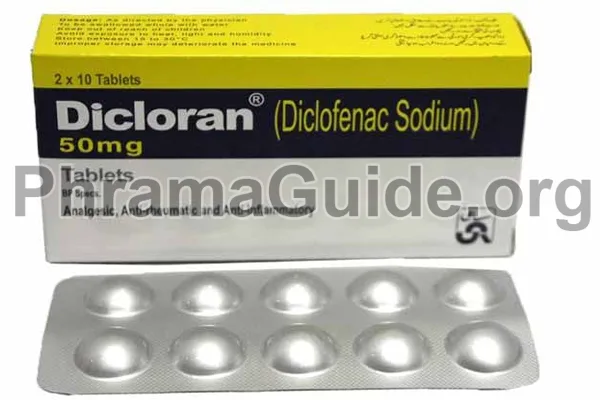Dicloran is a nonsteroidal anti-inflammatory drug (NSAID) that is commonly used to reduce pain and inflammation in conditions such as arthritis, joint pain, and musculoskeletal injuries. Like all medications, Dicloran can have side effects. It’s important to note that not everyone will experience these side effects, and some people may experience them to a greater or lesser degree than others.
Gastrointestinal Effects
- Stomach pain or discomfort
- Heartburn
- Nausea
- Diarrhea
- Constipation
Ulcers and Bleeding:
- Dicloran can increase the risk of developing stomach ulcers or gastrointestinal bleeding, which can be serious, especially with long-term use.
Cardiovascular Effects
- Increased risk of heart attack or stroke, especially when used at high doses or for prolonged periods. This risk may be higher in individuals with existing cardiovascular conditions.
Kidney and Liver Effects
- Impaired kidney function
- Elevated liver enzymes
- Liver damage (rare)
Skin Reactions
- Skin rash
- Itching
- Photosensitivity (increased sensitivity to sunlight)
- Severe skin reactions (e.g., Stevens-Johnson syndrome, toxic epidermal necrolysis) are rare but serious and require immediate medical attention.
Fluid Retention
- Swelling of the feet, ankles, or hands (edema)
Blood Disorders
- Decreased platelet count (thrombocytopenia)
- Decreased white blood cell count (leukopenia)
Central Nervous System Effects
- Headache
- Dizziness
- Nervousness

What is Dicloran?
Dicloran is one of the leading brands of Diclofenac Sodium, manufactured and marketed by Sami Pharmaceuticals Pakistan.
Dicloran : Available Formulations and Strengths
Presently, Dicloran is available in Tablets, Injection and Gel Forms
Dicloran Tablet : 50mg Strength
Dicloran SR Tablet : 100mg strength
Dicloran Injection : 25mg/ml Strength
Dicloran Gel : 1.16%w/w.
What Are The Possible Drug Interactions of Dicloran?
- Other Nonsteroidal Anti-Inflammatory Drugs (NSAIDs): Using multiple NSAIDs simultaneously can increase the risk of gastrointestinal bleeding and other side effects. It’s generally not recommended to take Dicloran with other NSAIDs.
- Anticoagulants (Blood Thinners): Combining Dicloran with anticoagulants like warfarin or newer blood thinners (e.g., rivaroxaban, apixaban) can increase the risk of bleeding.
- Antiplatelet Drugs: Medications like aspirin, clopidogrel, or prasugrel, which are used to prevent blood clots, can also increase the risk of bleeding when taken with diclofenac sodium.
- Corticosteroids: Concurrent use of corticosteroids and Dicloran can increase the risk of gastrointestinal bleeding and ulcers.
- Selective Serotonin Reuptake Inhibitors (SSRIs) and Serotonin-Norepinephrine Reuptake Inhibitors (SNRIs): Combining Dicloran with certain antidepressants, such as fluoxetine or venlafaxine, can increase the risk of bleeding.
- Diuretics: Dicloran may reduce the effectiveness of diuretics (water pills) and can potentially lead to increased blood pressure if taken with some diuretic medications.
- Angiotensin-converting enzyme (ACE) Inhibitors and Angiotensin II Receptor Blockers (ARBs): The combination of Dicloran with these medications may reduce their effectiveness in controlling blood pressure.
- Lithium: Dicloran can increase lithium levels in the blood, potentially leading to lithium toxicity.
- Methotrexate: Concurrent use of Dicloran and methotrexate can lead to increased methotrexate levels in the blood, potentially causing methotrexate toxicity.
- Cyclosporine and Tacrolimus: These drugs, often used in transplant patients to suppress the immune system, can interact with Dicloran and affect kidney function.
- Digoxin: Dicloran can increase digoxin levels in the blood, which may lead to digoxin toxicity.
- Antihypertensive Medications: Dicloran can reduce the effectiveness of some blood pressure medications, such as beta-blockers and diuretics.

Leave A Comment